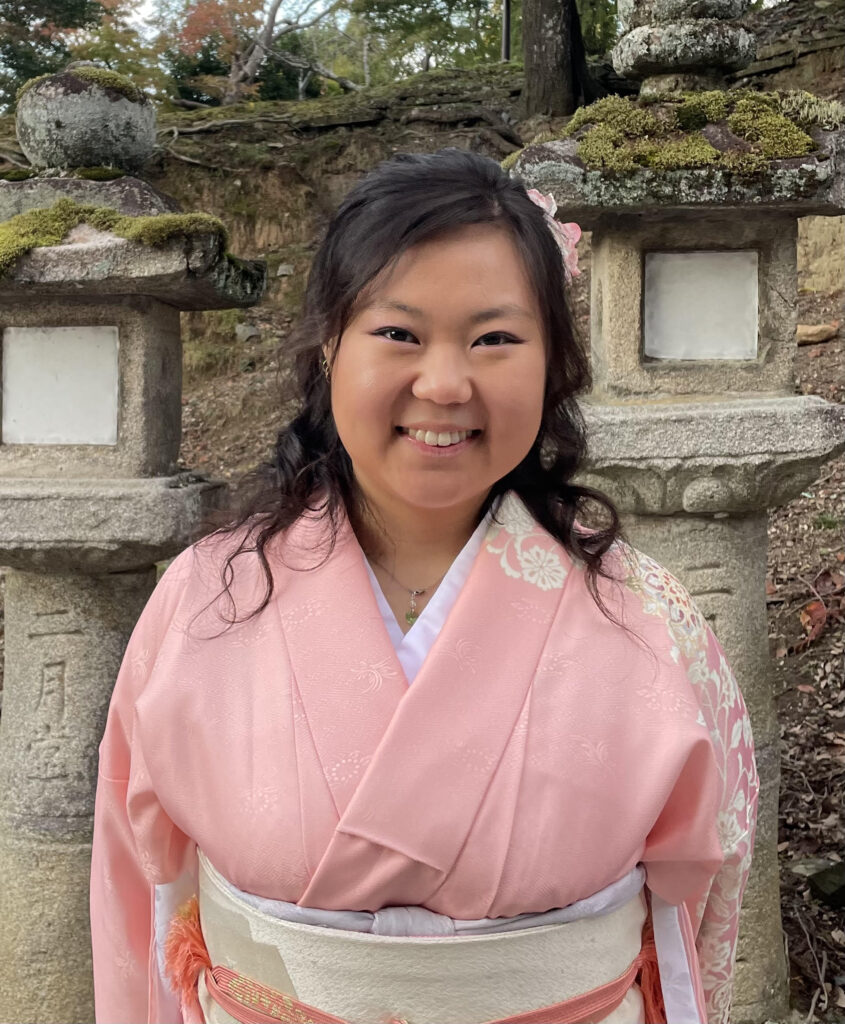Rachael M. Kang is currently enrolled in our Human-Centered Computing PhD program with an expected graduation date of May 2026. She graduated from the University of North Carolina, Chapel Hill with a BS in Psychology in 2018 and received her MS in Experimental Psychology from the Rochester Institute of Technology in 2021. Her research interests include studying mental health-related mobile applications.
Monday, April 29, 12-1pm, Kang will give a virtual presentation titled, “ChatGPT & AI in Research, Education, and the Classroom” as part of the Albin O. Kuhn Library’s AI, Privacy, and Ethics Symposium. Kang shares why she chose UMBC, what she will discuss in her upcoming talk, and how ChatGPT and AI have raised new questions for her research.
Information Systems: You are currently a PhD student in our Human-Centered Computing program. Can you tell us about your experience in the program thus far?
Rachael M. Kang: I have had a great time as a PhD student in the HCC program. My advisor is Tera Reynolds and I have enjoyed working with her on my research. Everyone in my cohort has also been amazing, and I feel like we have all grown really close to each other throughout my time here. I think my favorite part of the program is how diverse the experiences and backgrounds of everyone in the HCC department are. We have students and faculty who have studied from all over the US and the world, which is definitely reflected in our classes and the eclectic research projects everyone is involved in.
Information Systems: Given your background in psychology, what led you to pursue a doctoral degree in HCC, and what drew you to UMBC?
Rachael M. Kang: In my undergraduate, I studied clinical psychology and ways that we can utilize technology to disseminate psychological science and resources to the public. Our research lab was dedicated to breaking down the walls between research and researchers and the people who are in need of psychological care. In my Master’s program, I continued to study the use of technology to support psychology. My thesis was examining ways we can utilize machine learning to predict suicide risk. However, as I kept conducting this research, I realized that I was much more interested in making sure people are able to use this technology since the technology is meaningless if it is not usable. This led me to pursue a PhD in HCC where I am studying mental health-related mobile phone applications. I chose UMBC because of my advisor, Tera, and because of the flexibility this program allowed in the topics I could pursue in my research. Tera reached out to me after I was admitted, and we just clicked. I knew that she would be an amazing advisor, and, so far, this has proven 100% true.
Information Systems: Your upcoming talk “ChatGPT & AI in Research, Education, and the Classroom” will wrap up the Library’s AI, Privacy, and Ethics Symposium. Can you provide a preview of what attendees should expect to learn from your presentation?
Rachael M. Kang: In my talk, I will discuss how ChatGPT has been affecting AI research in various fields of research. I will also talk about the pros and cons of utilizing ChatGPT in education and the classroom and ways that instructors can encourage students to use ChatGPT responsibly. I will also share some exercises that my co-TA and I conducted in our class to teach our students how to appropriately use ChatGPT with their homework assignments.
I believe that AI and large language models like ChatGPT are only going to become more advanced and pervasive in our lives, so, instead of fighting against it, the best course of action is to educate ourselves and the future generation about the capabilities and limitations of AI in research, education, the classroom, and beyond.
Information Systems: As a PhD student, can you provide examples of how ChatGPT and AI have impacted your research and education?
Rachael M. Kang: AI and ChatGPT have been a hot topic of research in all fields, not just HCC. In my research, specifically, these topics have opened up new questions about data safety and privacy as well as ways we can utilize ChatGPT to improve patient care. For example, there are concerns from users about their data being sold to third parties to use in machine learning-based algorithms to tailor ads. On the other hand, though, researchers in health informatics have wondered if there are ways we can integrate something like ChatGPT into patient care so patients can use these programs to better educate themselves about their health conditions, insurance, and more.
Information Systems: What skills or knowledge do students need to effectively leverage ChatGPT and AI in their academic journey?
Rachael M. Kang: I think that ChatGPT gets a bad reputation as a tool for cheating, making students feel like they shouldn’t use it or need to hide their use of it. This shouldn’t be the perception anyone has about such tools as these tools aren’t going anywhere. I think that it’s important to remember that, like all tools, ChatGPT and AI have their limitations. For students, I think the most important thing to know about ChatGPT and AI is what ChatGPT can and cannot do. For example, ChatGPT is a great way to look up cursory information about a topic like a definition or overview of a subject. However, ChatGPT cannot create original work such as an essay or article.
